News
The rot of ragging
No longer is ragging the lighthearted thing of the past. Today, it is a crude and sadistic exercise that, despite widespread censure, continues to be inflicted on unsuspecting freshers by seniors.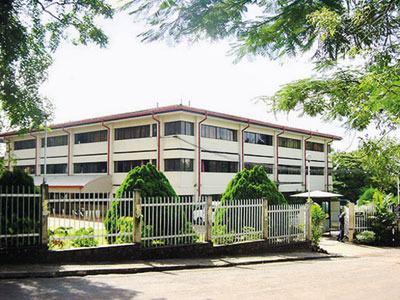
He was blindfolded and stripped down to his underwear before being marched into a dark hall. Malaka, a 24-year-old fresher from the Borella-based Institute of Indigenous Medicine (IMM) — his full name we have withheld — was then told to remove his blindfold and forced to urinate into a basin along with his batch-mates while a senior shook flour over them.
They were given two minutes to clean themselves. “We had no option but to run to the washrooms doused in flour with only our underwear on,” he recounted. “And we were expected to return in a sarong worn sideways, covering one shoulder and stomach while exposing our private areas.”
It didn’t end there. Malaka was shoved into three rooms. The first was dubbed the ‘porno room’ where he was forced to watch X-rated movies. The second was the ‘circumcision room’ where he was blindfolded and stripped naked after which surgical spirit was poured on his genitals to simulate circumcision.
The third was the ‘badu kamaraya’ (‘badu’ being a crude, colloquial reference to women). At the entrance, he had to produce a condom that the seniors had earlier issued him. Once inside, he and the others were assaulted by the seniors who asked them, “Umbala badu gahannada awe?” or “Did you come to sleep with women?”
Saman, a fresher from the University of Visual and Performing Arts, said he was forced to perform exercises continuously without sleep until he was exhausted. We have withheld his full name, too. These activities had to be carried out naked in a hostel room. He did half-squats and stayed in the same position for hours; ran in one place; and jumped like a frog until he had no strength to get up the next day.
The seniors shaved off his chest hair. His pubic hair was also shaved off, tied onto a string and placed around his neck. “We had to wear it to lectures and the girls were told it’s our chest hair,” he said. “We felt so ashamed.”
Fresher females from IMM face different challenges. One student, who requested anonymity, said she survived only a week at the university hostel as her seniors did not let her study.
During her free time, the seniors forced her to practise dances for their social. “We practised day and night,” she related. “We were not allowed to study for our exams or look at a book. We fell asleep exhausted.” The fear of failing exams caused enormous stress. They were also scolded in filth during the day in university.
“If I didn’t comply, a senior would beat up our male batch-mates, telling them I was responsible for their misfortune,” she continued. After quitting the hostel over the ragging, she gets late and tired arriving at the institute for lectures but she prefers it to the pressure she underwent.
“From the day I left the hostel, I’m called an anti-rag student,” she said. “They scold us till we break down and cry, using abuse and stopping us from going to the canteen and library even after we graduated to the second year.”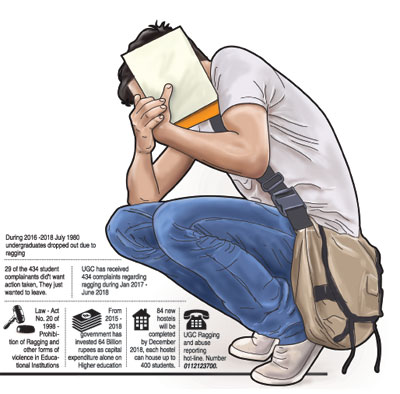
These were just a handful of cases. There were others: From Kelaniya, Sabaragamuwa, Ruhuna and Peradeniya Universities; and also from the Advanced Technical Institute of Gampaha and the Higher National Diploma of Engineering, Labuduwa.
Around 1,989 students have left universities during the past two years alone, said Education Minister Wijeyadasa Rajapakshe, adding that the reasons for their dropping out are being studied. Some students committed suicide within the last decade while many silently suffered lifelong psychological trauma and depression as well as other illnesses. Parents of university students must be vigilant and speak to their children regularly about their health and campus life, he urged.
University authorities had, in the past, soft-pedalled on implementing the 1998 legislation–the Prohibition of Ragging and Other Forms of Violence in Educational Institutions Act–against ragging in higher education institutions, the Minister maintained.
“They knew the seriousness of the menace but took it lightly,” he told the Sunday Times, while commending former Education Minister Richard Pathirana for introducing the law which empowers a magistrate to refuse bail and carried a maximum penalty of ten years rigorous imprisonment.
Leadership must come from the State, Mr. Rajapakshe admitted. The Police Department has been given strict instructions that any offences must be charged under the 1998 law. The Inspector General of Police (IGP) has conveyed this to Deputy Inspectors General (DIGs) countrywide. Separately, to address ragging, there is a task force, made up of University Grants Commission (UGC) officials, university administrators, researchers and police among others.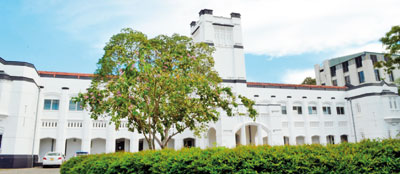
There is an online portal to report incidents related to ragging. Between January 2017 and June 2018, 434 complaints related to ragging have been received via different channels available to students, UGC Chairman Prof Mohan de Silva said. A mobile phone application is also undergoing trials.
Some students complained anonymously due to the fear of retribution by seniors. “New students are reluctant to antagonize their peers and seniors who carry out ragging as they might then be constantly abused, denied access to libraries, canteen and other vital facilities,” a second-year ragging victim said.
The situation is so dire that 84 of the 434 complainants did not identify even their universities. Twenty-nine of them did not seek action and wanted to leave their courses and universities.
Some students who lodge complaints are later intimidated by seniors or university officials into backtracking on or changing their allegations. At times, complainants don’t turn up for court hearings or claim they cannot recall the incident clearly. Such is the magnitude of retribution and intimidation faced by those challenging the established ragging culture kept alive by fringe anarchic groups.
Broader Sri Lankan society has long looked at ragging as a “rite of passage” for students. Many think ragging is a mild inconvenience and shrug it off as part and parcel of university life. Some recollect their own university experiences of a bygone era and believe the status quo hasn’t changed. Today’s reality is different. The impact of ragging differs from person to person, with some being pushed so far as to commit suicide.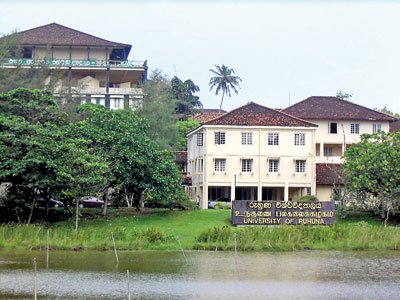
Popular myths about ragging must be dispelled, Prof de Silva said. Based on reports and complaints the UGC has received, much of the ragging today involves violence and significant sexual harassment. Sri Lankan society has been plagued by both for some time. Cultural norms and stigma may prevent students from going public about the horrors they undergo.
Some university authorities, including vice chancellors, actively discourage students from reporting ragging or ask complaints to be watered down, claimed students carrying out anti-ragging campaigns. This is to avoid bringing the institutions into disrepute. The authorities are also hesitant to challenge the unions.
Seniors often caused freshers to lose their confidence, dignity and individuality while at the same time portraying themselves as their only saviours, some victims of ragging said. They are never the same after getting beaten up and forced to engage in sexual acts merely for speaking freely, questioning the actions of seniors or speaking in English. Ragging can take place in the nights or early mornings so that students fall asleep during lectures. Hostel nights and group gatherings involving ragging are called on the day before major exams.
Freshers whose studies are severely affected by the ragging then have no option but to seek support from student unions. They join their protests on the premise that only the unions can secure jobs for them or, at least, appointments to political movements.
Anti-rag student groups are blocked from attending exams even during their senior years. This is because groups that rag students threaten and beat them or instigate freshers to lodge bogus complaints against them. They then end up wasting time at police stations.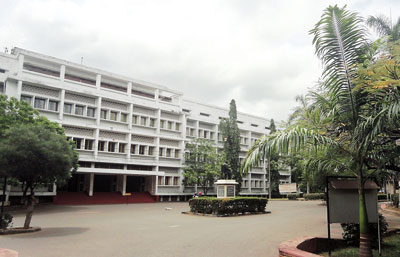
A member of an anti-rag group at the Institute of Indigenous Medicine in Rajagiriya said he was forced to collect money in a till for unions but found it impossible to meet the target. Students were first told to find Rs 250,000 for “equipment for the university” and other activities such as repairing the library or donating to a hospital.
But the accounts are not provided to students. “Later, they tell the freshers they had great fun buying booze with the money while the rest was used to pay lawyer fees to release union heads who are frequently arrested,” this member said. He alleged that senior student counsellors and the Institute’s head turn a blind eye to ragging saying, freshers must “go through the system” as they had once done.
Anti-rag students have sent letter after letter to lecturers, reporting that they are getting ragged even though the “season” is over.
“The anti-ragging act has a weak point,” the campaigner said. “There is no regulation to prosecute juniors who assault seniors. Even if a senior frowns at a junior they can lodge a complaint but a senior cannot. The ragging groups exploit this, sending gangs of freshers to assault us and then having complaints lodged to create a negative picture of us.”
Lahiru Weerasekera, Convener of the Inter University Student Federation (IUSF), denied any involvement in ragging. The movement does not engage in any activity that would make them unpopular among students and the public, he insisted. Support could not be won through fear psychosis and torture.
There were some extreme, backward activities occurring in universities, but these will change with time, Lahiru said. “We are fighting to gain entry for more students,” he maintained. “We don’t want to discourage them. We only struggle for free education.”
They do bear upon students to sell pens, stickers and other items as well as collect money in tills. But this was for facilities for universities as the Higher Education Ministry did not provide sufficient funds for final year students to complete their studies.
“We don’t need to explain to anyone how we spend the money,” Lahiru asserted. “It is because of the Government’s failure that we collect funds and use it for social development.”
A Kelaniya University student recently passed away attempting to fulfill a target given to him. He was told to find Rs 100,000 by selling Indian gooseberry (‘nelli’) to assist the education of seniors. He was electrocuted while trying to pluck it from a tree.
Lahiru was critical of the use of anti-ragging legislation. He said it aggravates the issue. “The IUSF’s proposal is to allow freshers and senior students to move together and build up a forum against ragging,” he said.
During the past three years, the Government invested Rs 64bn into higher education as capital expenditure alone, countered Prof de Silva. Eighty-four new hostels were built (some will be completed by December), each with a capacity to accommodate 400 students. He criticized the lack of accountability for funds collected by the movement.
The UGC opened two centres for gender equity and equality at Kelaniya and Eastern Universities. They are staffed 24 hours and have a hotline (0112123700) for students to report ragging and sexual and gender- based violence.
| Raggers will be shown no mercy, says President | |
| President Maithipala Sirisena warned on Friday that raggers will be shown no mercy and will be dealt with severely under the law. “Ragging which destroys the future of students cannot be allowed to happen in our universities any longer,” the President said while attending a foundation stone-laying ceremony at the National Vocational Training Center at Polonnaruwa He said thousands of students do not enter university due to fear of ragging while thousands of others suffer physically and mentally after entering state-run campuses. He added that 25 deaths have occurred due to ragging. |
| She fears for her life A female student at the centre of a controversial ragging incident at Kelaniya University is forced to lead a fearful existence. She did not wish to be named. Now in her third year, she depends on the campus to provide her with security, even during her journeys to and from home. She was responsible for having complained to the university authorities and the police about ragging, leading to the arrest of three female and five male undergraduates (both seniors and freshers). This made other students turn on her. This student had reported to the Director of Student Affairs that she was assaulted by some seniors who even threatened to remove her trousers if she didn’t follow their prescribed dress code. Even her batch-mates became reluctant to share books or help her in lectures after the incident. She was warned not to come to public areas such as the cafeteria. Anti-ragging students were harassed for standing up for her. The girl was assaulted four times on the road to the university, at a bus stand nearby, in a lecture hall and inside the faculty for not following the student dress code laid down by seniors. This meant skirt, blouse and rubber slippers. Her hair had to be worn the way they wanted. The raggers spat on the floor and made threatening gestures. Social media attacks were launched to tarnish her image. The alleged perpetrators were remanded for 80 days under the Prohibition of Ragging and Other Forms of Violence in Educational Institutions Act. The case is pending. Students are often humiliated, ordered to sing obscene songs and scolded until they cry. Sometimes, they have to stand in the sun for hours without access to water or toilets. | |
| Where’s the justice for my daughter, asks mother of suicide victim | |
| The Higher Education Ministry is supporting action being taken against a Vice Chancellor and police for failing to act against two students who allegedly ragged her daughter and forced her to commit suicide in 2015, Wasantha Padmini Elvitigala told the Sunday Times. Time after time, she went to university authorities. She also reported the incident to the National Police Commission (NPC) and the Human Rights Commission (HRC). Higher Education Minister Wijeyadasa Rajapakshe finally granted her a meeting. “He heard my story and provided me with a lawyer,” she recounted. “He directed me to file a complaint of inaction against the Vice Chancellor of the Sabaragamuwa University as well as the police for not releasing information on ragging.” Ms Elvitigala has provided the authorities with the names of two Sabaragamuwa University female students whom she alleged were responsible for ragging her daughter, Sayakkara Hewage Amali Chathurika, multiple times. The HRC held an inquiry at which the university authorities gave their version of events. Meanwhile, the NPC maintained that Amali had committed suicide, not over ragging, but due to depression. “She was a cheerful girl and mentally sound,” her mother insisted. “It was only after ragging that she became depressed. Why won’t they understand this?” Ms Elvitigala also wrote to the NPC in March last year, calling for a fresh inquiry. But they pointed out that she had withdrawn the complaints she lodged with Homagama police at the time Amali was ragged. “My daughter was terrified that the seniors would rag her even more if the police got involved,” she said. At the end of 2017, the NPC asked her to write within 14 days if she wanted a further inquiry. “Now nine months of this year have passed and there is still no justice for my daughter,” she said. Amali entered the university in 2014 and was sent home several times after falling ill, allegedly due to ragging. She stopped eating and tried to commit suicide twice before succeeding on her third attempt. UGC Chairman Prof Mohan de Silva has with him the letter written by Amali Chathurika before her death. Holding it up, he said he used it to educate the public about the serious consequences of ragging. He claimed that the letter did not contain the full names of the perpetrators in order to take action against them. He also alleged that the police and the university authorities were covering up such incidents. Ms Elvitigala said she knew the names of those who drove her child to death and that both were residents of Homagama. |

